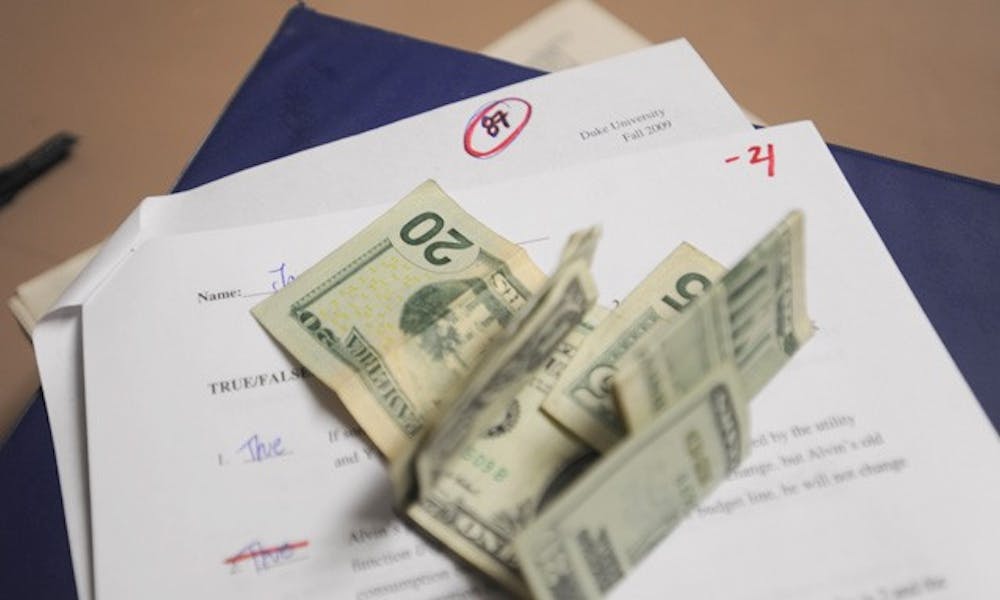Starting this semester, predicting your grades has the potential to pay off.
Ultrinsic Motivator Inc. allows students to bet on their ability to correctly predict their course grades. The company incorporates data from a student’s academic history in order to calculate offers of cash rewards for those seeking to gamble.
“It’s not just about getting the grades,” said Jeremy Gelbart, one of the company’s co-founders.
Starting this semester, predicting your grades has the potential to pay off.
Ultrinsic Motivator Inc. allows students to bet on their ability to correctly predict their course grades. The company incorporates data from a student’s academic history in order to calculate offers of cash rewards for those seeking to gamble.
“It’s not just about getting the grades,” said Jeremy Gelbart, one of the company’s co-founders. “You set your own goals, and you set what your rewards are—I think every student would like that.”
Students at 36 institutions across the country can sign up for accounts for Ultrinsic. When selecting universities to include, the company considered factors such as student demand, the size of a student body, types of academic programs, location and a school’s sports conference, Gelbart said.
“[Duke] is one of the top schools in [the Southeast],” he said. “Location, sports and academics—that’s why we chose [to include] Duke.”
The program’s success on campus is completely up to students, though, said Steve Nowicki, dean and vice provost for undergraduate education. He said that he wants students to perform well in the classroom but recognized the possibility that Ultrinsic could become a distraction.
Some students though, are wary of the idea of betting on their coursework. Sophomore Joey Lauer said the fear of losing his investment outweighs the incentive.
“I don’t know—personally, I’m not that into gambling,” he said. “I don’t think I would—but maybe I’d try it.”
Sophomore Ryan Boone said the program requires students to be honest with themselves and have realistic expectations. He also said he does not think he will use Ultrinsic, however.
To junior Maha Mourad, the decision not to participate is largely an ethical issue. Money shouldn’t be a student’s motivation to do well in their classes, she added.
And one student pointed out that adding a monetary risk to their studies could actually make the learning process more stressful.
“Honestly, to add money into the mix would just make things worse,” said sophomore Hillary Martinez.
But as the website approaches the start of its second operational year, Gelbart said so far students and faculty have reacted to the company favorably. He added that some professors consider the program to be a tool to motivate students.
“I know Duke students enjoy their classes, and maybe this will make them more enjoyable,” he said. “When students have to choose between going to a party and pulling an all-nighter to study, this provides an incentive to study because you’re going to get paid. It’s that extra push.”
Creative ways to motivate students are nothing new, though, Nowicki said.
“My view is that what really students should be motivated by is their desire to be successful in this world,” he added. “Ultimately, that’s why students should be taking classes.”
Get The Chronicle straight to your inbox
Sign up for our weekly newsletter. Cancel at any time.

